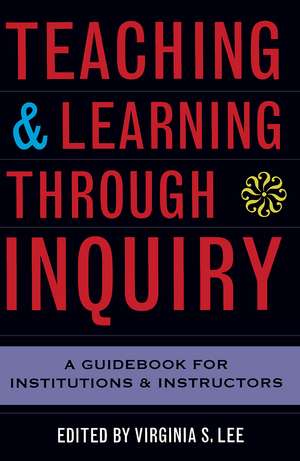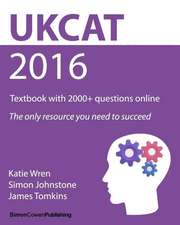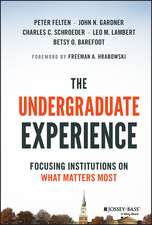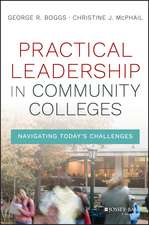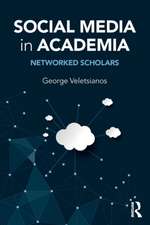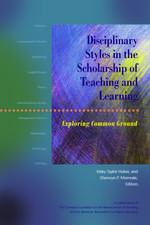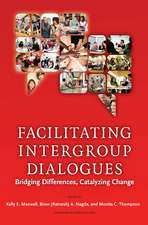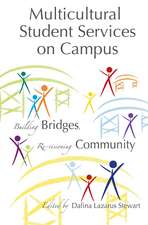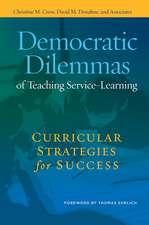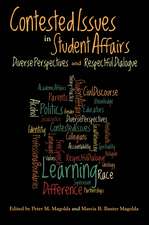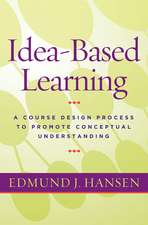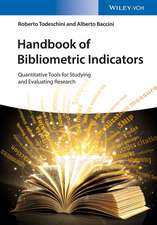Teaching and Learning Through Inquiry: A Guidebook for Institutions and Instructors
Editat de Virginia S. Leeen Limba Engleză Paperback – sep 2004
Preț: 263.08 lei
Nou
Puncte Express: 395
Preț estimativ în valută:
50.36€ • 54.72$ • 42.33£
50.36€ • 54.72$ • 42.33£
Carte tipărită la comandă
Livrare economică 21 aprilie-05 mai
Preluare comenzi: 021 569.72.76
Specificații
ISBN-13: 9781579220815
ISBN-10: 1579220819
Pagini: 288
Dimensiuni: 152 x 229 x 21 mm
Greutate: 0.42 kg
Ediția:1
Editura: Taylor & Francis
Colecția Routledge
Locul publicării:Oxford, United Kingdom
ISBN-10: 1579220819
Pagini: 288
Dimensiuni: 152 x 229 x 21 mm
Greutate: 0.42 kg
Ediția:1
Editura: Taylor & Francis
Colecția Routledge
Locul publicării:Oxford, United Kingdom
Public țintă
Postgraduate and Professional Practice & DevelopmentCuprins
Preface; PART ONE. SETTING THE CONTEXT. What is Inquiry-guided Learning?—Virginia S. Lee, David Greene, Janice Odom, Ephraim Schechter, and Richard W. Slatta; Inquiry-Guided Learning at North Carolina State University. A Brief History—David B. Greene, Virginia S. Lee, and J. Douglas Wellman; PART TWO. INTERPRETING AND IMPLEMENTING INQUIRY-GUIDED LEARNING; All in the Balance. Psychology 201 "Controversial Issues in Psychology"—Samuel B. Pond, III; Music 200, "Understanding Music". An Inquiry-guided Approach to Music Appreciation; Jonathan Kramer and Alison Arnold; SCALE-UP. Bringing Inquiry-guided Learning to Large Enrollment Courses—Maria Oliver-Hoyo and Robert Beichner; Inquiry-guided Learning and the Foreign Language Classroom—Ana Kennedy and Susan Navey-Davis; Incorporating Active Learning, Critical Thinking and Problem-Based Learning in an Advanced French Culture and Civilization Course—Arlene Malinowski; Enhancing Inquiry-guided Learning with Technology in History Courses—Richard W. Slatta; Inquiry-guided Learning in a Food Science Capstone Course—Lynn G. Turner and Christopher R. Daubert; Inquiry-guided Learning Through Collaborative Research in a Graduate Course—George R. Hess and C. Ashton Drew; Inquiry-guided Learning and the Undergraduate Major in the Department of Microbiology—Michael Hyman and Gerry Luginbuhl; The Challenge of Implementing an Inquiry-guided Approach in a Highly Technical Curriculum—Adrianna G. Kirkman, Medwick V. Byrd, Hasan Jameel, and John A. Heitmann; Engineering Computing as an Essential Component of Inquiry-guided; Learning—Roger P. Rohrbach, Joni E. Spurlin, Kathy Mayberry and Sarah A. Rajala; Inquiry by Design. Learning in the Studio Setting—Meredith Davis and Paul Tesar; Inquiry-guided Learning and the Undergraduate Curriculum. General Education and the Major—Susan Blanchard, Marilee Bresciani, Michael Carter, Virginia Lee, and Gerry Luginbuhl; PART THREE. INQUIRY-GUIDED LEARNING PROGRAMS AND RELATED INITIATIVES. Inquiry, Critical Thinking And First Year Programs—David Greene, Janice Odom, and Arlene Malinowski; The Heart of the Matter. Writing, Speaking, and Inquiry-guided Learning—Chris M. Anson and Deanna P. Dannels; Service-Learning. Integrating Inquiry and Engagement—Sarah L. Ash and Patti H. Clayton; PART FOUR. SUPPORTING AND ASSESSING INQUIRY-GUIDED LEARNING. Mastering Inquiry-guided Learning One Step at a Time:Faculty Development and Dissemination—Virginia S. Lee; Assessing the Impact of Inquiry-guided Learning at NC State—Virginia S. Lee; Contributors. Index.
Notă biografică
Virginia S. Lee has her own consulting business, Virginia S. Lee & Associates, with a focus on teaching, learning and assessment in higher education. From 2000-2004 she was the Associate Director, Faculty Center for Teaching and Learning, NC State University where she led the inquiry-guided learning initiative and had lead responsibility for the design and implementation of faculty development programs. She serves on the editorial review boards of Innovative Higher Educaton and the Journal of Faculty Development and was a past editor of the POD Network in Higher Education's Essays in Teaching Excellence series. She has published and presented on a wide variety of topics in teaching and learning in higher education.
Recenzii
“Virginia Lee hits the mark with her book on inquiry based learning. Most books addressing pedagogical practices are either too theoretical or so practically oriented that they lack a theoretical grounding. Lee combines both in a way that is attractive to any reader. She moves us from the theoretical to the practical in thirteen different classroom situations across just as many disciplines. The reader can easily find his/her discipline among the chapters in this section. The final portion of the book brings the reader full circle when Lee addresses inquiry based learning in relation to critical thinking, writing, service learning, faculty development and assessment.”
Devorah A. Lieberman, Provost and Vice President for Academic Affairs
Wagner College
"Faculty, do you want to use inquiry-guided learning in your classes? Faculty Developers, do you want to support change in teaching and learning practices? Administrators, do you want a case study on managing undergraduate reform efforts? If you answer 'yes' to any of these questions, then Virginia Lee's book is an excellent starting point…This book is a 'must read' for faculty, who want their students to learn to think critically, develop inquiry skills, and take responsibility for learning. It offers a key strategy for achieving these goals and deepening the undergraduate learning experience. The book also provides faculty developers and administrators with ideas on creating and supporting change in the higher education classroom."
The National Teaching and Learning Forum
Devorah A. Lieberman, Provost and Vice President for Academic Affairs
Wagner College
"Faculty, do you want to use inquiry-guided learning in your classes? Faculty Developers, do you want to support change in teaching and learning practices? Administrators, do you want a case study on managing undergraduate reform efforts? If you answer 'yes' to any of these questions, then Virginia Lee's book is an excellent starting point…This book is a 'must read' for faculty, who want their students to learn to think critically, develop inquiry skills, and take responsibility for learning. It offers a key strategy for achieving these goals and deepening the undergraduate learning experience. The book also provides faculty developers and administrators with ideas on creating and supporting change in the higher education classroom."
The National Teaching and Learning Forum
Descriere
This book documents and explores NCSU’s IGL initiative from a variety of perspectives: how faculty arrived at their current understanding of inquiry-guided learning and how they have interpreted it at various levels -- the individual course, the major, the college, the university-wide program, and the undergraduate curriculum as a whole.
